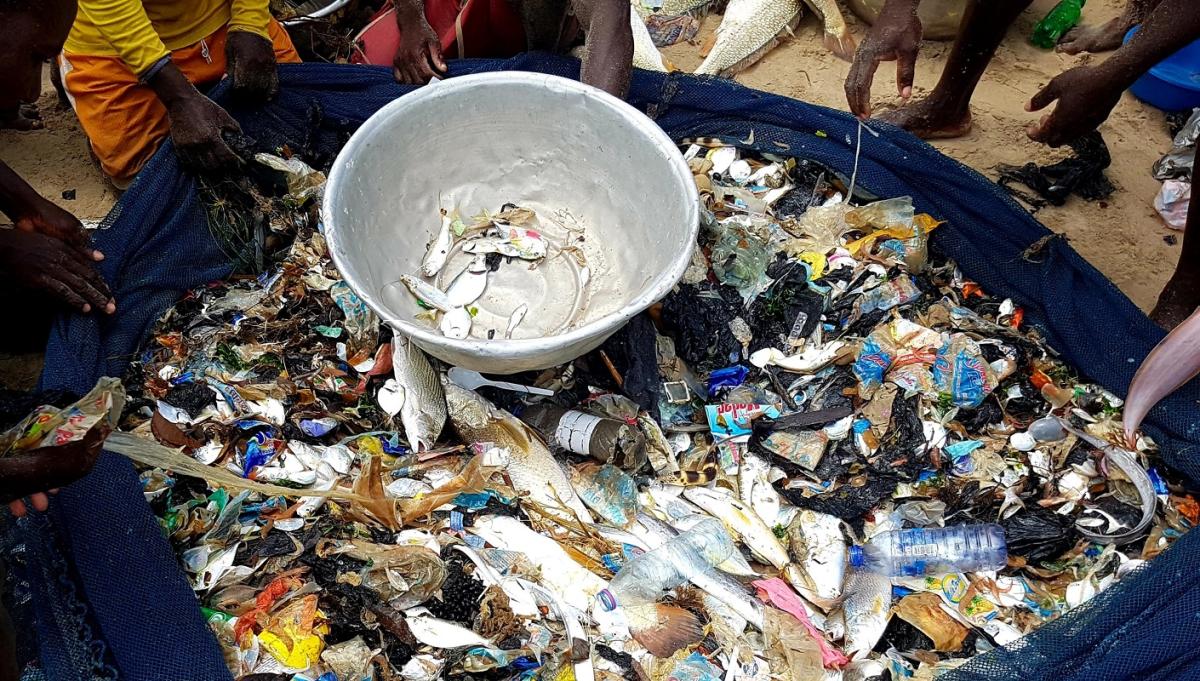This project is a participatory monitoring activity aimed at understanding the role and effects of citizen science in the monitoring of plastics in freshwater systems in the Odaw river basin in the Greater Accra Region of Ghana. The project is a collaboration between the Museum für Naturkunde Berlin (MfN, Germany), Wageningen University & Research (WUR, Netherlands), and the Helmholtz Centre for Environmental Research (UFZ, Germany) and is implemented between March and October 2023.
The Republic of Ghana is experiencing a plastic waste crisis due to insufficient recycling and plastic waste management infrastructure, resulting in high plastic waste pollution on land and in water bodies. The impact of plastic pollution on freshwater ecosystems raises concerns about health and environmental issues and has negative socio-economic implications for the Ghanaian population. The Ghanaian government has therefore furthered targets for reducing those leakages and opened a platform for several actors to develop solutions on reducing plastic waste and pollution. Building on these initiatives, the present study aims to support the Ghanaian goals for reducing plastic waste pollution by addressing the role of citizen science in plastics monitoring.
Precise plastic monitoring is essential for informed policy decisions on preventing and reducing plastics in freshwater systems. However, detailed monitoring data are often lacking or are hardly comparable along temporal and regional scales. The United Nations Environmental Programme (UNEP) has therefore published the UNEP guidelines for plastic monitoring in freshwater systems. The present project firstly engages citizens in the monitoring of plastics based on these guidelines and analyses how citizen science monitoring activities affect the citizen’s knowledge, awareness, and further engagement in addressing the complex problem of plastics pollution. To this end, the project includes citizen-based monitoring activities and analyses these activities through pre- and post-surveys and additional interviews with stakeholders and experts. As an expected outcome of the project, a regional blueprint for citizen science-based plastic monitoring in freshwater systems is developed, following the methods of the UNEP monitoring guidelines.
The project is part of the World Water Quality Alliance’s (WWQA) workstreams set up to advance water quality monitoring on a global scale and support decision-making processes on water-related issues for good ambient water quality. The project thus also affects the achievement of Sustainable Development Goals (SDG) 6 on Clean Water and Sanitation and related SDGs as plastic waste in waterways can cause hygienic problems and lead to contamination of drinking water resources.
The project further builds on previous projects in which the guidelines for monitoring plastics in freshwater were jointly designed, discussed and implemented together with regional stakeholders from the Global North and the Global South attending to reduce and prevent marine litter and plastic pollution from rivers in the future.
Funding:
- UNEP (United Nations Environment Programme)
Links:
- World Water Quality Alliance Workstreams
- Guidelines for monitoring plastics in freshwater-systems
- Previous projects on monitoring: Activity 1 and Activity 2
